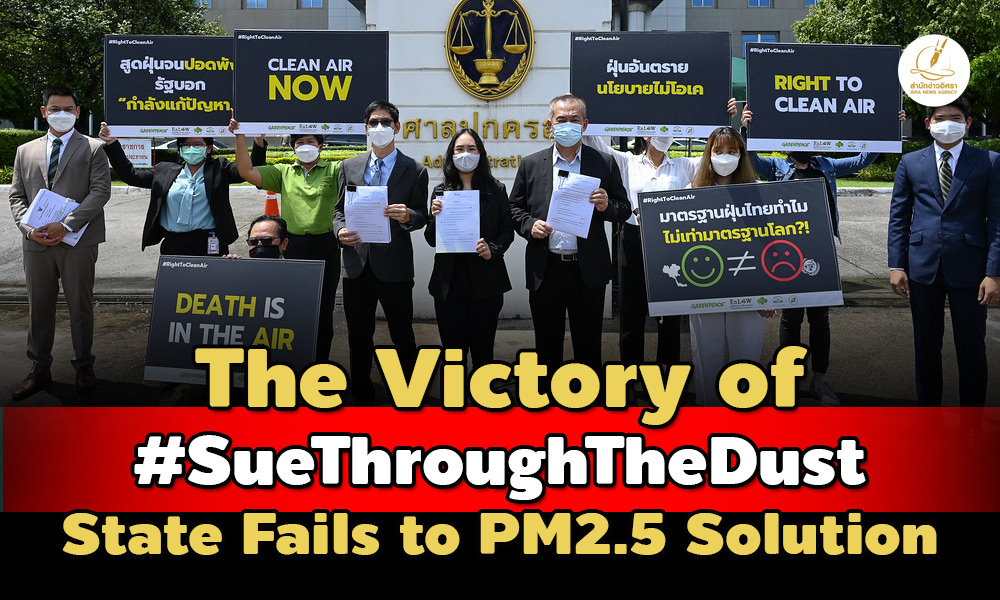
"...This lawsuit serves as a means to compel the state to fulfill its responsibilities in safeguarding the rights of the people. I consider this a highly significant issue, particularly in cases where the constitution does not explicitly outline rights protection..."
Particulate matter, less than 2.5 microns (PM 2.5) is dust that is smaller than 1/25 of the diameter of a human hair. It can enter the respiratory system, air sacs in the lungs, and directly enter the bloodstream, increasing the risk of chronic diseases.
Based on the analysis of air pollution and PM 2.5 between 2014 and 2020, it was discovered that numerous areas, particularly Bangkok and northern Thailand, consistently exhibited PM 2.5 levels exceeding the standard atmospheric threshold. Consequently, people have been enduring significant air pollution-related health problems for over eight years.
Information regarding dust sources in Thailand indicates that the majority originates from open burning. The industrial sector ranks third, accounting for only 17%. Many environmentalists believe that this figure may actually be lower than reality, as other countries that have successfully addressed dust problems typically attribute up to 30% of dust to the industrial sector.
Given the severity of this issue, on January 17, 2022, the Environmental Law Foundation (EnLAW) and Greenpeace Thailand jointly submitted a letter to the Ministry of Natural Resources and Environment and the Ministry of Industry, urging both government agencies to adhere to the 2019 National Agenda Action Plan for addressing dust pollution problems but did not yield any results.
As a result, the Environmental Law Foundation, Greenpeace Thailand, the Ecological Alert and Recovery - Thailand, Chiang Mai Breath Council, Northern Region Breath Council, and social activists such as Dr. Suphat Hasuwankit, President of the Rural Doctors Club, and Ms. Nanticha Ocharoenchai, Co-founder of Climate Strike Thailand, collectively filed a lawsuit with the Central Administrative Court. The lawsuit targeted three government agencies, the National Environment Board, the Ministry of Natural Resources and Environment, and the Ministry of Industry, which serve as the main responsible bodies. This action was taken on March 22, 2022, to compel these government agencies to fulfill their duties in addressing the issue of air pollution caused by PM2.5 dust and safeguarding the people's right to live in a healthy and environmentally safe environment.
The Administrative Court accepted the complaint as No. Sor. 6/2022. A statement was issued to confirm the facts and intentions during the first hearing, which took place on August 10, 2023.
In PM2.5 dust lawsuits, there are four important issues to consider.
-
The National Environment Board is required to revise its announcement concerning the standards for particulate matter smaller than 5 microns in the general atmosphere to align with international standards (WHO-IT3). This includes a 24-hour average for PM2.5 dust at 37 micrograms per cubic meter and an annual average of 15 micrograms per cubic meter.
-
The Environment Committee and the Minister of Natural Resources and Environment are tasked with determining the permissible levels of air contaminants emitted from factories into the environment. These levels should not exceed 5 microns in dust particle size, and they should adhere to specified and international standards.
-
The Minister of Industry is responsible for issuing or amending announcements that specify the permissible levels of air contaminants emitted from factories into the environment. These levels should not exceed 5 microns in dust particle size and should meet specified and international standards.
-
The Minister of Industry must establish a Pollutant Release and Transfer Register, which should include dust particles no larger than 5 microns in size as part of the list of target pollutants and chemicals.
On August 29, 2023, the Central Administrative Court issued a verdict on the lawsuit, requiring government agencies to address the issue of air pollution caused by PM2.5 dust. The court ordered the Ministry of Industry to expedite the preparation of the Pollutant Release and Transfer Register (PRTR) within 60 days from the finalization of the case. The judgment dismissed the case related to the issuance or amendment of announcements setting standards for PM2.5 dust contaminants in the air released from factories into the environment, citing the administrative body's authority and the court's inability to intervene in this matter.
Regarding the issue of aligning the PM2.5 dust standards in the general atmosphere with the World Health Organization (WHO) standards, the court determined that the National Environment Board had indeed delayed its actions. However, since the standard adjustment was already announced during the court's consideration on July 8, 2022, just three months after the public sector filed a lawsuit to expedite the case, the court deemed it unnecessary to issue an order on this matter.
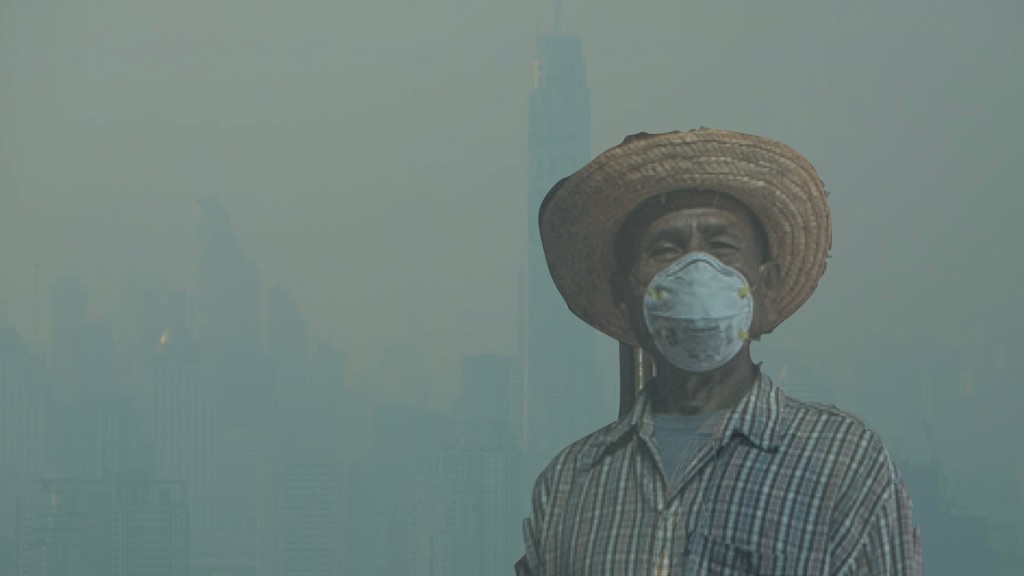
After the Administrative Court delivered its verdict, Mr. Surachai Tongngam, Secretary-General of the Environmental Law Foundation, commented that the court's decision is considered a precedent for environmental cases in Thailand. This is especially significant for cases related to air pollution, which have a widespread impact on the Thai population. The foundation will closely monitor and ensure that the government undertakes clear measures to reduce PM2.5 dust levels and establishes legislation for reporting and disclosing information on emissions and pollutant transport, known as PRTR, in compliance with the court's ruling. Regarding the issues dismissed by the court, such as setting standards for PM2.5 dust reduction at the source, parties have the right to appeal within 30 days, and the High Court will make the final decision. The foundation intends to continue engaging with civil society during the appeals process.
Mrs. Penchom Saetang, Director of the Ecological Alert and Recovery - Thailand, added that the Reporting and Disclosure of Pollutant Emissions and Transport Act, or PRTR, is a direct law employed by many countries worldwide to address pollution issues. This law differs from the current environmental regulations, which encompass broad environmental protection. PRTR legislation is specifically designed to directly control industrial plants and various pollution sources, aiming to reduce the release of pollutants into the environment.
The core principle of this law, which is practiced worldwide, revolves around publishing information about the quantity and nature of pollution from all sources on a public website. This approach aligns with the principle of providing the public with easy access to information.
This law would establish a comprehensive database encompassing all types of pollution sources, with both the type and quantity of pollution consolidated in a single accessible location. This would benefit all government agencies and the public alike. Ms. Penchom emphasized the urgency of implementing the PRTR law in Thailand to effectively address the air pollution problem.
Ms. Alliya Muanob, an air pollution campaigner at Greenpeace Thailand, stated that while the public sector has won the case, our work is far from over until environmental issues are completely resolved. She emphasized that civil society will continue to closely monitor the efforts of the new government in addressing the PM2.5 dust problems that are adversely affecting people's quality of life. She called upon the new government to take swift and serious action on this matter, emphasizing that safeguarding public health is an urgent priority.
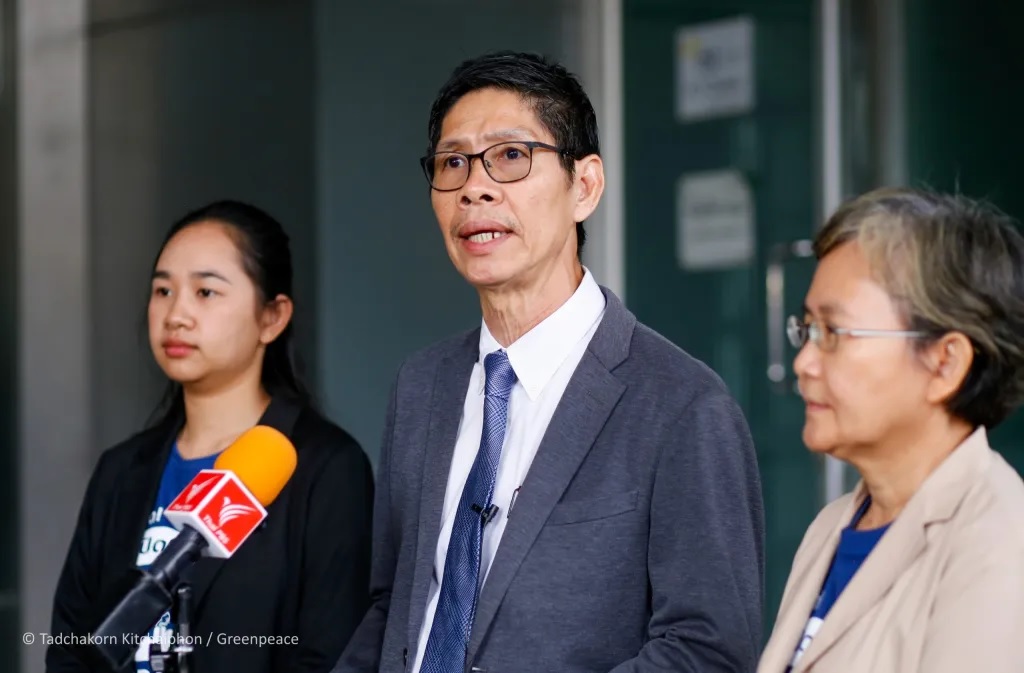
Dr. Decharat Sukkamnerd, an Agricultural and Resource Economist and the Director of the Think Forward Center at the Kao Klai Party, commented that this judgment represents a lawsuit where people assert their right to sue the responsible agency for oversight and accountability for its impact.
“This lawsuit is not intended to claim compensation for the damages suffered by an individual. Instead, it serves as a means to compel the state to fulfill its responsibilities in safeguarding the rights of the people. I consider this a highly significant issue, particularly in cases where the constitution does not explicitly outline rights protection” Dr. Decharat explained.
Dr. Decharat stated that the outcome of this decision will set a precedent for government agencies, making it impossible for them to disregard the effects or consequences that impact the public. Without such a judgment, the government might perceive that it has fulfilled its duties to the extent required. The positive outcome of this decision will encourage government agencies to strive for their best efforts, otherwise, they may face legal action from the public sector once more.
Dr. Decharat discussed the issue of the current constitution, the absence of any specific provision regarding the right to a healthy environment. In contrast, during the period from 1997 to 2014, previous constitutions did include such provisions. The section on rights and freedoms explicitly stated that people had the right to participate with the state and communities in preserving and benefiting from natural resources, maintaining environmental quality to sustain their livelihoods in a normal and continuous environment without posing health and hygiene risks. However, the 2017 Constitution did not contain a provision worded in the same manner, guaranteeing the right to a healthy environment.
Therefore, it is imperative to incorporate more explicit provisions, as the absence of clear provisions can lead to confusion regarding the existence of these rights. The recent court ruling has aptly emphasized, “Although it is not included in the constitution, that doesn't mean it's gone”
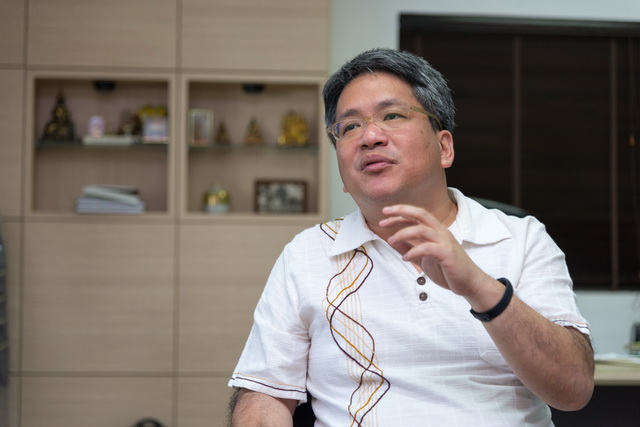 Dr. Decharat Sukkamnerd, an Agricultural and Resource Economist
Dr. Decharat Sukkamnerd, an Agricultural and Resource Economist
Dr. Supat Hasuwankit, President of the Rural Medical Club and one of the co-plaintiffs, described the lawsuit as a significant victory. Shortly after the lawsuit began, the Ministry of Natural Resources and Environment announced new PM 2.5 dust standards for the general atmosphere, aligning with international norms. These standards set the 24-hour average of PM 2.5 dust at 37 micrograms per cubic meter and the annual average at 15 micrograms per cubic meter. Prior to this change, Thailand's PM2.5 standard was considerably higher, nearly five times the WHO air quality recommendation. With the introduction of the new standards, various related agencies adjusted and issued announcements to ensure consistency.
“In general, this is yet another crucial case where the public sector resorted to legal action, prompting government agencies to expedite the implementation of measures to minimize the impact on the people. Typically, we would approach government agencies directly, but achieving success in this manner has often proved challenging,” Dr. Suphat explained.
Lawsuit like #SueThroughTheDust is not the first legal actions taken by the public sector against the issue of air pollution. However, over the past two years, there have been a total of five lawsuits filed by the public sector. This suggests that the state's efforts in addressing the dust problem are insufficient and have not effectively managed to alleviate the suffering. In Chiang Mai, a group of concerned citizens came together to file four cases against government agencies. Among these, three cases have already been processed, while one case is currently under consideration.
This is an intriguing case that sets a new societal norm. It involves a dispute concerning the neglect of duties by government officials as required by law or undue delays in carrying out these duties. The case revolves around Mr. Suchart Pichai, the plaintiff, and the defendants, including the Prime Minister as the 1st Defendant and the National Environment Board as the 2nd Defendant.
The court has ruled that both defendants in the lawsuit neglected to fulfill their duties as mandated by the Enhancement and Conservation of the. National Environmental Quality Act, B.E. 2535. Additionally, the Prime Minister neglected to fulfill their duties as stipulated by the Disaster Prevention and Mitigation Act, B.E. 2007, or performed these duties unreasonably late in addressing and resolving the issue of dust or PM2.5 in Chiang Mai Province.
The Chiang Mai Administrative Court has issued an order to both defendants, requiring them to implement effective and expedient measures for precaution, prevention, relief, and resolution of future incidents involving smoke or dust particles with a size not exceeding 2.5 microns in Chiang Mai. The court instructed the 1st defendant and the 2nd defendant to collectively exercise their authority in accordance with the Enhancement and Conservation of National Environmental Quality Act B.E. 2535, the Disaster Prevention and Mitigation Act B.E. 2550, and other relevant laws. This includes taking any necessary actions to be vigilant, prevent, alleviate, and address pollution problems arising from particles of smoke or dust particles with a size not exceeding 2.5 microns in the atmosphere, with the aim of achieving and maintaining air quality index criteria that are very good for people's health and the environment in a timely manner.
Although the Administrative Court has already issued a ruling in favor of the public sector, people will continue to monitor and oversee the efforts of government agencies. This ongoing vigilance is necessary to ensure that access to clean air remains a fundamental right for all of us.
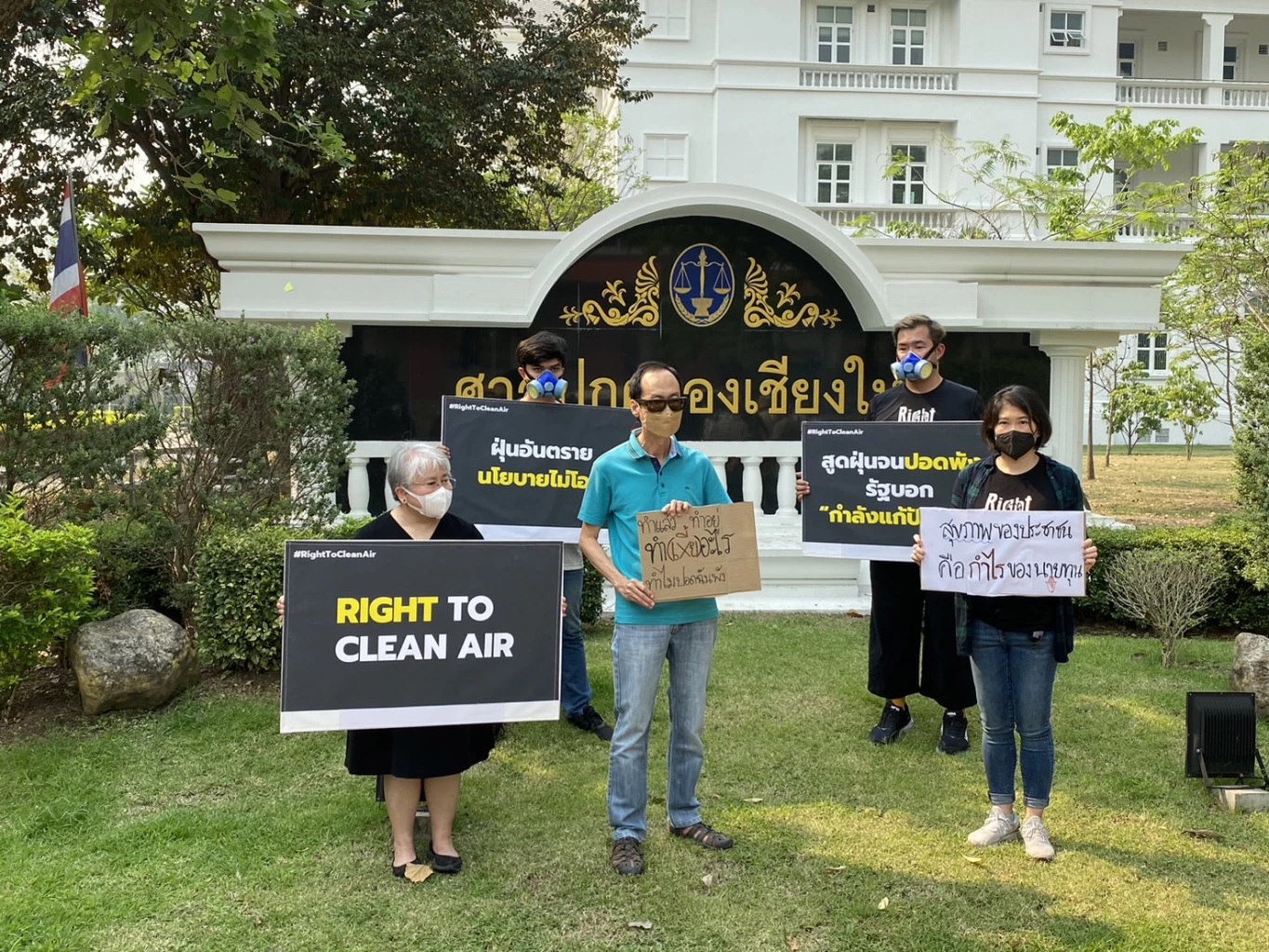



 Isranews Agency | สำนักข่าวอิศรา
Isranews Agency | สำนักข่าวอิศรา